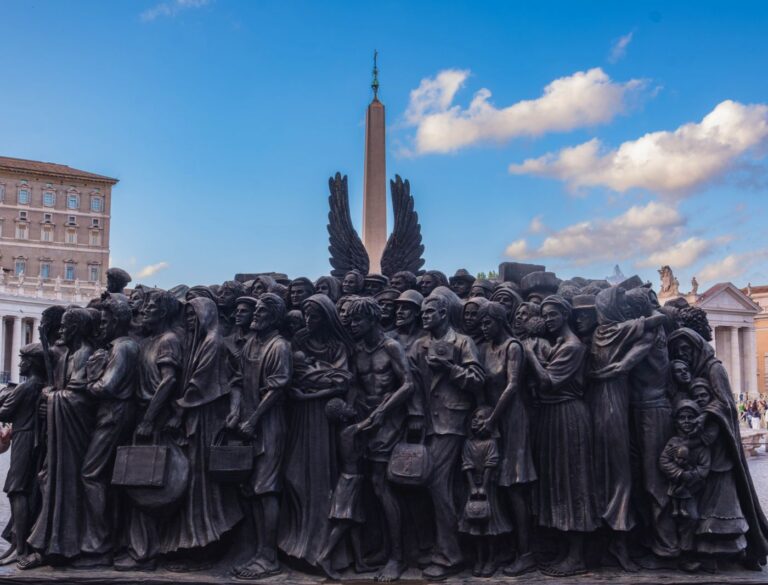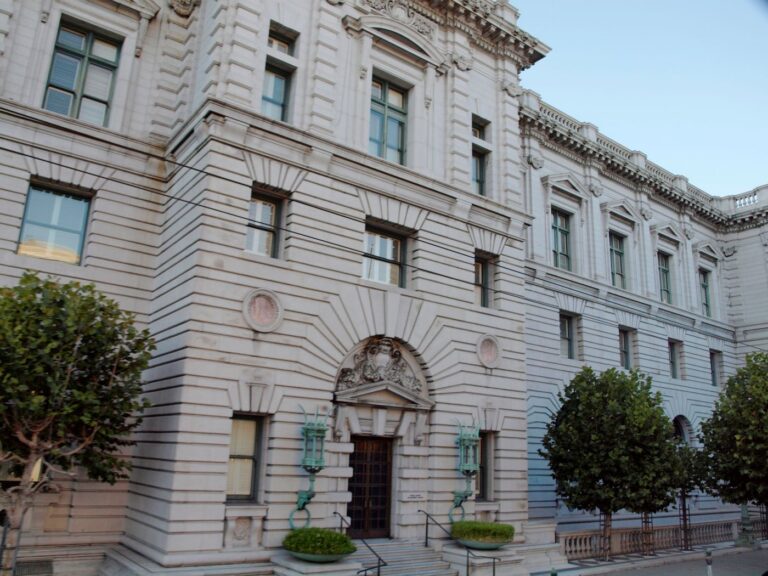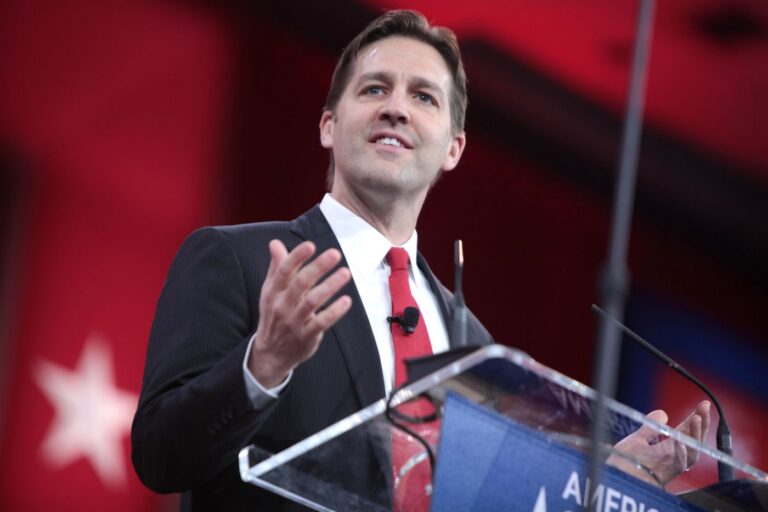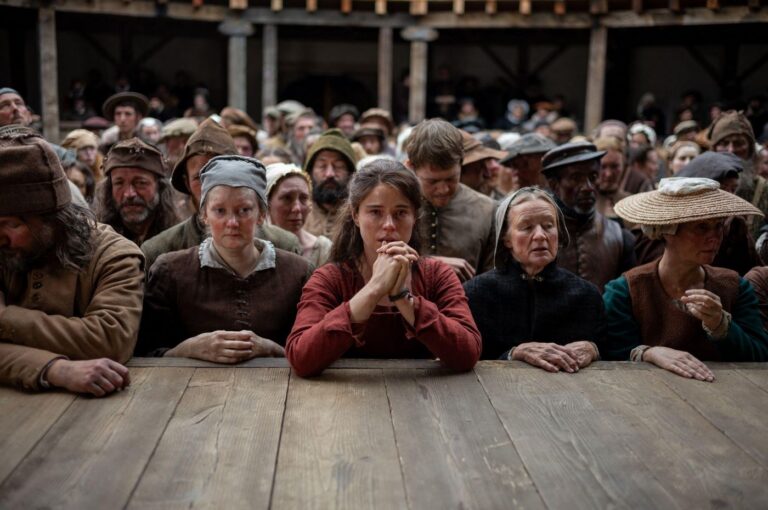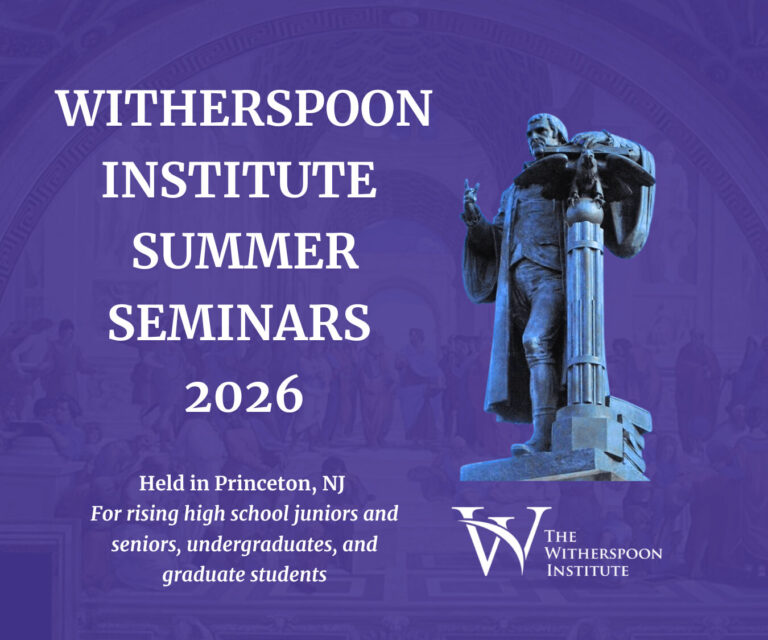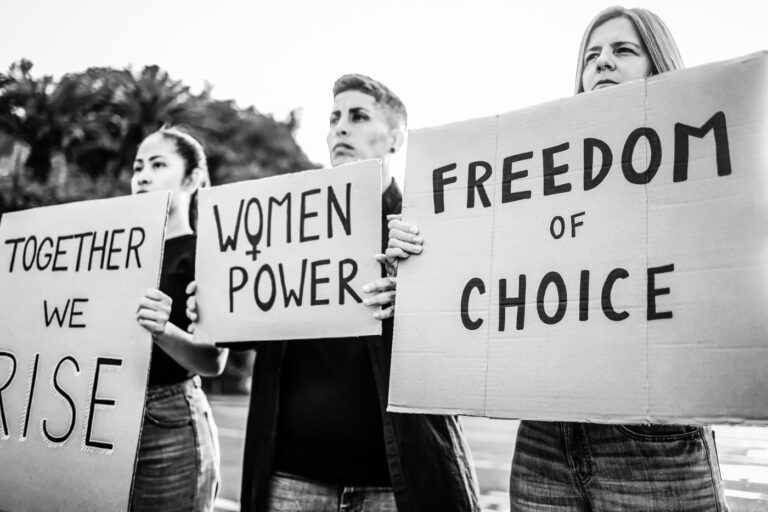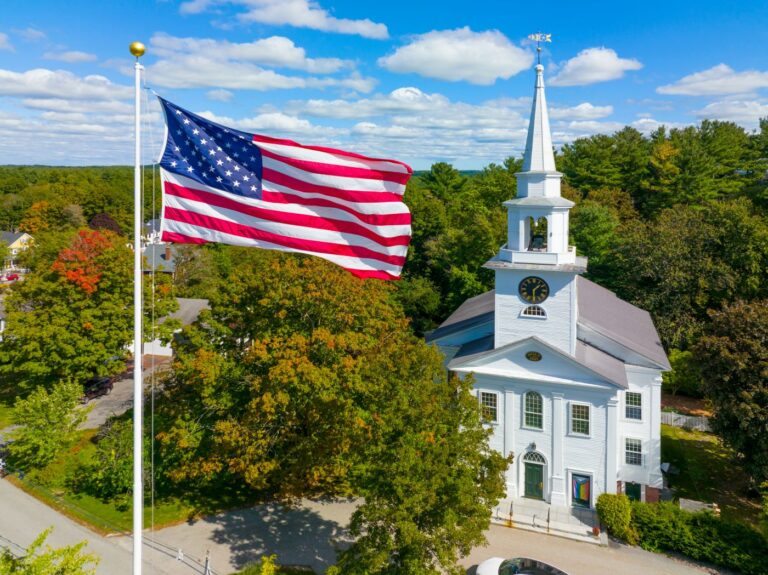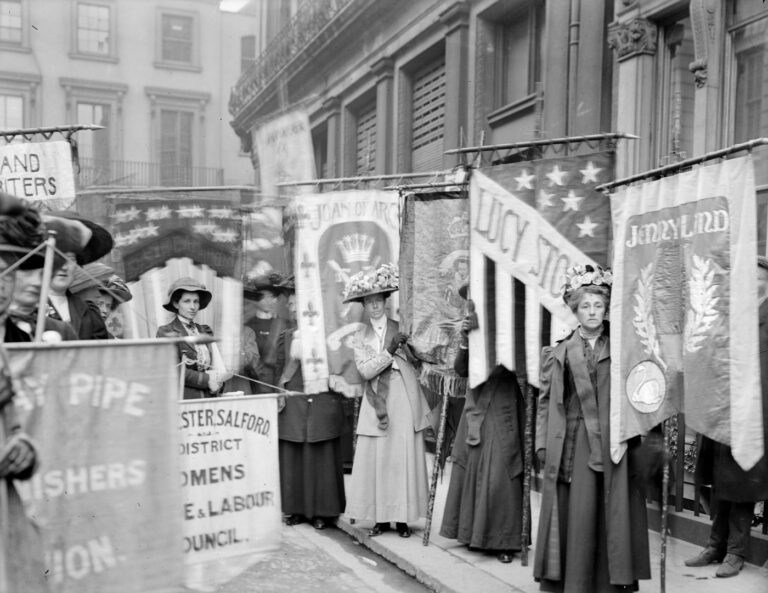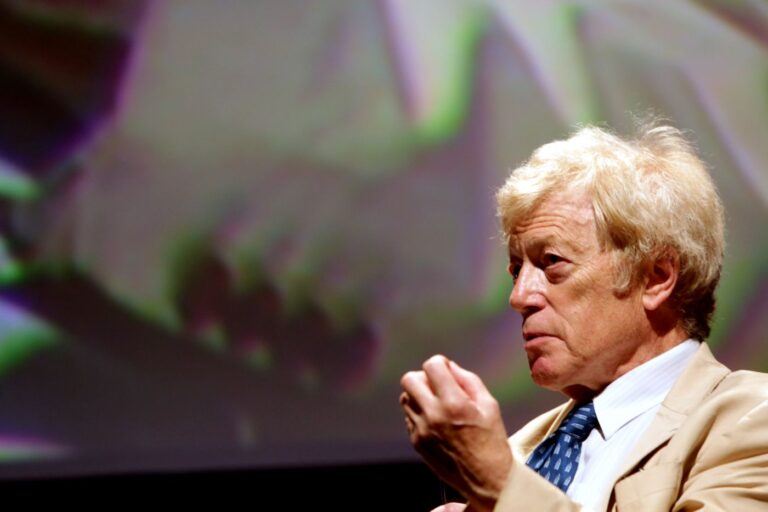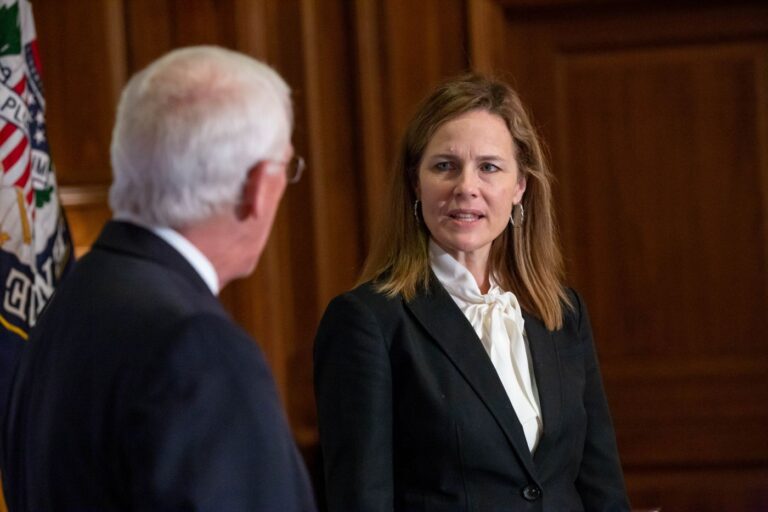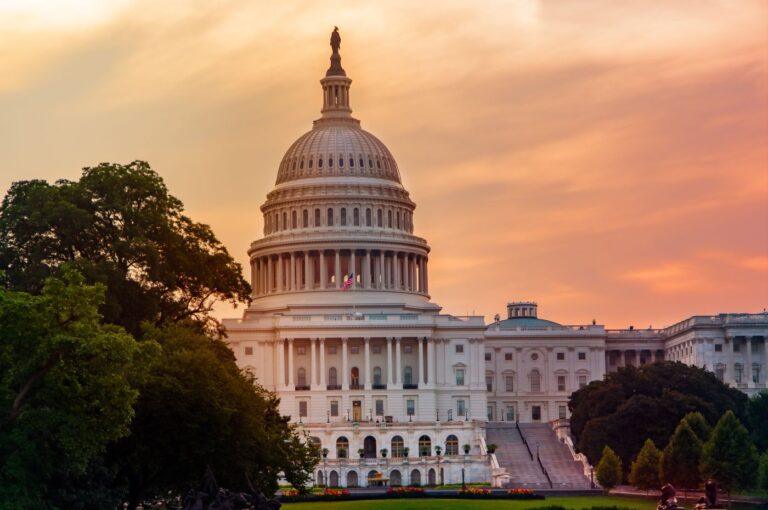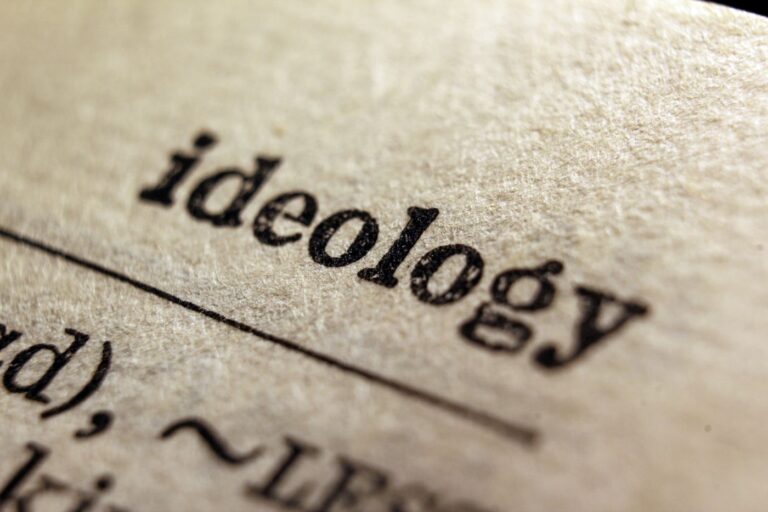Witherspoon Institute
2026 Summer Seminars
Held in Princeton, NJ
For rising high school juniors and seniors, undergraduates, and graduate students.
Keep up with the conversation! Subscribe to Public Discourse today.
Interviews
By Alexandra Davis and Robert L. Luddy
You need people to have the tenacity, the wonder, and the willingness to say, “I can do some things better than what is currently being done in the marketplace.” And that’s the nature of entrepreneurship.
By Serena Sigillito and Angela Franks
I’m all for refuting bad ideas. But the way you really convince people is to show them that what they want, they’re not getting from the wrongheaded idea, but they can get it from a correct understanding of what’s good and true.
By Luma Simms and Nathanael Blake
Policies matter, as do choices by individuals, families, and congregations. But ultimately our hope, both for rolling back the sexual revolution and then keeping it at bay, is in the grace of God.
By Micah Watson and Hunter Baker
I continue to believe that our best path forward is to respect one another and to avoid the constant temptation to engage in emotional and political manipulation from the left and right.
The whole world is God’s creation, an expression of his love. The truth about ourselves as dependent creatures who he loves, whom he sent his Son to redeem, is out there for us. We can blind ourselves to it, we can ignore it, but it’s very loud. And the more we help each other see it, the happier we will ultimately be.
We are very different people from those who came before us, because of our deficits in social learning.
By Nathaniel Peters and Donald W. Landry
Medicine goes back 5,000 years. Medicine is already 2,500 years old when Hippocrates articulates the Oath, and it hasn't even started the infancy of its science. So for millennia, the medical profession has been in service of those in need—regardless of risk.
By Matthew X. Wilson and Stephen Macedo
There was a fundamental failure of toleration for alternative points of view. I think some of it might be explained by the fact that it was a pandemic. For public health guidance to be effective, people have to comply. To that I would say fair enough, but it’s also equally important—or more important—to have confidence that the policies are sound. People complying en masse with unsound policies won’t do us a whole lot of good. That’s what open debate is supposed to address.
Everyone can have their own beliefs about the ethical principles of human fertility. From a pure accounting perspective, however, the problem is people are not getting married. So, making IVF cheaper, for example, is not solving that issue.
Book Reviews
The joy of reading good books well is to better ponder and embrace them all.
The Hebrew Bible offers a “political realism” that may assist both religions, and hence Western civilization, to survive.
By Luke Foster
Pascal’s theology is sublime, beautiful, and all-consuming. But it reflects the life of a celibate mystic rather than that of the statesman who must transmit Christian culture. Statesmen after all must wager.
Regrettably, Gress's latest book is an exercise in dispatching straw men of its own making.
Is this tale imperfect? Yes. But it’s one that’s worth hearing regardless.
Ideas about the political conditions for human flourishing sometimes have unforeseen consequences. But the consequences of refusing to traffic in these ideas are foreseeably very bad indeed.
Kingsnorth sees the problems of technology; but he also realizes (and acknowledges) that he is embedded in the Machine. What he proposes toward the end is not a naïve and impossible utopian withdrawal but selective resistance to the Machine, resistance that can take various forms but that will always involve some level of complicity.
It is plain to this grateful reader that the tradition of the university has deeply formed Professor Hankins and Professor Guelzo into the kind of people capable of bringing to fruition the Herculean labor of love and learning that is The Golden Thread.
By Kevin Walsh
Questions about how to interpret our Constitution, the reader can conclude, ought to be approached from within the broader enterprise of understanding how to inherit it. The inheritance-based understanding of American constitutionalism that Barrett transmits through this book is itself worthy of being handed on with interest and appreciation.
Long Reads
Can We Restore Hope in Women’s Healthcare?
There’s no point in writing laws if the courts won’t follow them. It’s the trial judges, not the president, who are sapping Congress’s power. Perhaps it’s time that Congress does something about it.
By Gary Morson
When it comes to human beings, learning must not consist in committing a pre-packaged truth to memory, but an endless process of discovery and self-critique.
By Andrew Abela
What we need is a restoration of virtue in our land, in order to tame the strong gods and ensure that their power serves the good—so that the return to reality is marked not by domination, but by integrity, not by chaos, but by character.
What is the nature of human dignity? What is it to act justly towards another human being? For Augustine, the answer is that justice towards another human being is a matter of recognizing God’s image in them, and all that follows from that, the deep solidarity and communion that arises from this.
Why should we be faithful constitutionalists on matters of war powers in the first place (as opposed to being hard-headed “pragmatists”)? Why should we care about the Constitution, about this violation of it, by this president, at this time?
By Paul Sullins
Suppressing disfavored ideas from consideration has serious consequences for the possibility of scientifically informed public discourse in our day.
The Ukrainian Greek Catholic faithful, both lay and religious, are hard at work helping their country to forge a future worthy of human dignity.
By Jason Bedrick and Thomas Jipping
Parents’ authority over their children’s education is being challenged as much today as it was a century ago. Pierce remains a solid basis on which parents can insist on their proper place in the family and society.
Essay Series
Western Parenting
In a world where “success” is increasingly understood as zero-sum, we might have some empathy for today’s parents who are worried they are letting their kids down if they are not setting them up to succeed, even if that comes at a collective cost.
If Siddiqui's new moral imperative for artificial, disembodied procreation to ensure perfectly healthy babies becomes the norm, have we not lost something truly beautiful and human, the link between physical sexual communion and procreation?
By Ivana Greco
Is it possible to be considered a good parent today if your top priority is not perfecting your children, but rather simply being their “safe place”? I don’t know the answer, but it seems to me that being a warm and loving parent that children feel safe with is both a worthy and challenging goal. I have often reflected that many of my worst parenting mistakes happened when I tried to convince my kids to be other than the people they are.
Take it from me: girl boss or not, travel sports or not, having kids can be a lot easier and more fun if you just remember that you’re the grown-up.
Newsletters
Our roundup from an eventful month
On a somber anniversary.
On social justice, human nature, timeless beauty, and the power of flexibility
Infiltrating the culture with countercultural thinking about the value of life—and its connection to true, authentic gratitude—is not a religious or political matter, and no ideological camp has the upper hand in the argument. We need civil dialogue across political lines, and that’s what we seek to do.
By R.J. Snell
Procedures are necessary, of course, but we need substance as well. And our pages were full of substance this month, as every month.
A crucial aspect of Public Discourse’s mission is to be a beacon of light and a forum for serious, rigorous, and truth-seeking discourse even when temptations toward despair, radicalization, and provocative polemics abound. At PD, we charitably examine and challenge ideas and arguments—we don’t attack or demonize people, and we don’t serve any worldview, party, or ideology besides the cause of truth.
There are numerous ways that we increasingly strive to defy the natural limits our embodiedness imposes on us, and our pulling away from community and connectedness is just one example. In this kind of world, it’s easy to forget that our physical bodies, and all the limits and inconveniences they impose on us (or others!), matter a great deal. So it’s no mistake that our August essays seemed to touch on that theme.
If ennobling discourse is now countercultural, so too is our journal. Like the Witherspoon Institute, PD is an institution that bears witness to a virtuous (and virtuously “slower”) mode of public engagement: engagement that reflects an open-hearted, honest yearning for the common good.
By R.J. Snell
We do our best to build, strengthen, and defend the basic institutions of a free and flourishing people, institutions of the family, religion, good government, and education. At times we critique and note shortcomings, but even those criticisms are for something rather than against: we are for flourishing, for good institutions, and for the nation.








